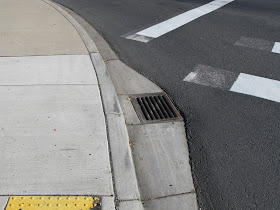What a productive year it has been at the Bicycle Alliance of Washington! Bicycle advocates and active transportation partners helped us earn some legislative victories. We’ve grown Safe Routes to School programs in communities across the state. We refined our vision, mission and goals through an inclusive strategic planning process.
Legislative Victories
The Bicycle Alliance and our legislative partners passed a bill that incorporates teaching motorists how to safely drive around bicyclists and pedestrians in Traffic School curriculum. The vulnerable user bill was finally passed this session, strengthening penalties under the negligent driving laws. We also passed a bill that established (but didn’t fund) a Complete Streets grant program that encourages local jurisdictions to adopt complete streets ordinances. Read the 2011 Legislative Wrap Up.
Over 100 active transportation, transit and rail advocates gathered in Olympia in February for Transportation Advocacy Day. We are one of the organizers for this annual event and our constituents were well represented by 8 Bicycle Alliance board members and 6 staff. Read more about the 2011 TAD.
Safe Routes to School
We’ve been busy this year helping participating school districts in south King County implement a comprehensive Safe Routes program in their schools. The Bicycle Alliance taught teachers in 31 school districts across Washington State how to instruct students on safe biking and walking skills. We now have a second staff person who is nationally certified to teach Safe Routes to School.
Go by Bike, a pilot program designed to bring bicycle safety education to college students, was launched this year with outreach to partnering schools in the Puget Sound region. Learn more about Go by Bike.
Strategic Plan
The Bicycle Alliance hosted a two-day strategic planning summit that included the participation of 40 stakeholders representing bike clubs, elected officials, health organizations, advocacy partners, transportation agencies, planners, urban and rural interests. This inclusive process resulted in a revised vision, mission and goals for the organization. Read the details here.
Other Highlights
We took our Hub & Spoke outreach tour to Olympia, Mount Vernon and Spokane to network with community advocates and discuss issues big and small. We met with stakeholders in the Methow Valley to begin coordinating our work on the US Bicycle Route System. We were in Vancouver to participate in the annual policy makers’ ride. We worked with the Peninsula Trails Coalition to weigh in on the alternatives proposed by Olympic National Park for the Olympic Discovery Trail. We worked with WSDOT and regional bike advocates to find acceptable solutions to improve bicycle safety on the Hood Canal Bridge. We coordinated efforts with Futurewise and community activists to rally support for and pass a Complete Streets ordinance in Spokane.
To date, over 4600 Share the Road license plates have been sold in Washington State. Funds from the purchase of these plates have supported our education activities, including the development and distribution of curriculum that teaches motorists how to safely share the road with bicyclists and pedestrians.
Internet outreach highlights:
Over 195,000 unique visitors to our website in 2011
Over 17,000 unique viewers of the blog
Bike Bites e-newsletter was distributed to over 3000 advocates each month
Facebook – 700+ followers – an 85% increase over 2010
We started to Twitter late this year and have over 250 followers






















